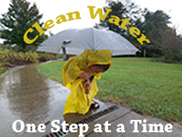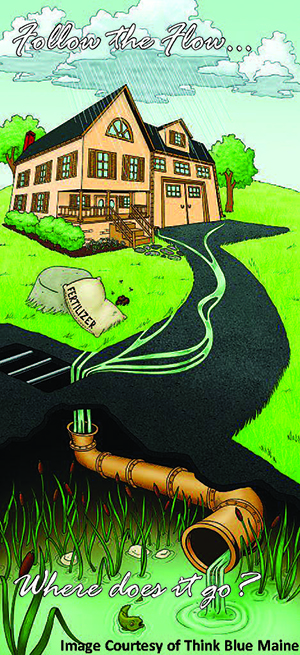What causes water pollution?
Runoff happens when rain or snowmelt flows across pavement or soil to the nearest lake, river or stream. Runoff picks up a variety of pollutants, such as oil, gas, fertilizers, animal waste, grass clippings, pesticides and lots more. Dirty runoff then goes into the storm drain and is delivered to the nearest lake, stream, or river. Storm drains are not connected to the sewage treatment plant. Water that goes down the storm drain is not cleaned, treated, or filtered in any way.
This polluted runoff causes many problems in our waters. The biggest problem is the excessive growth of weeks and algae. Weed harvesters are a common sight on local lakes and algae blooms, including the dangerous blue-green algae, are becoming more common.




